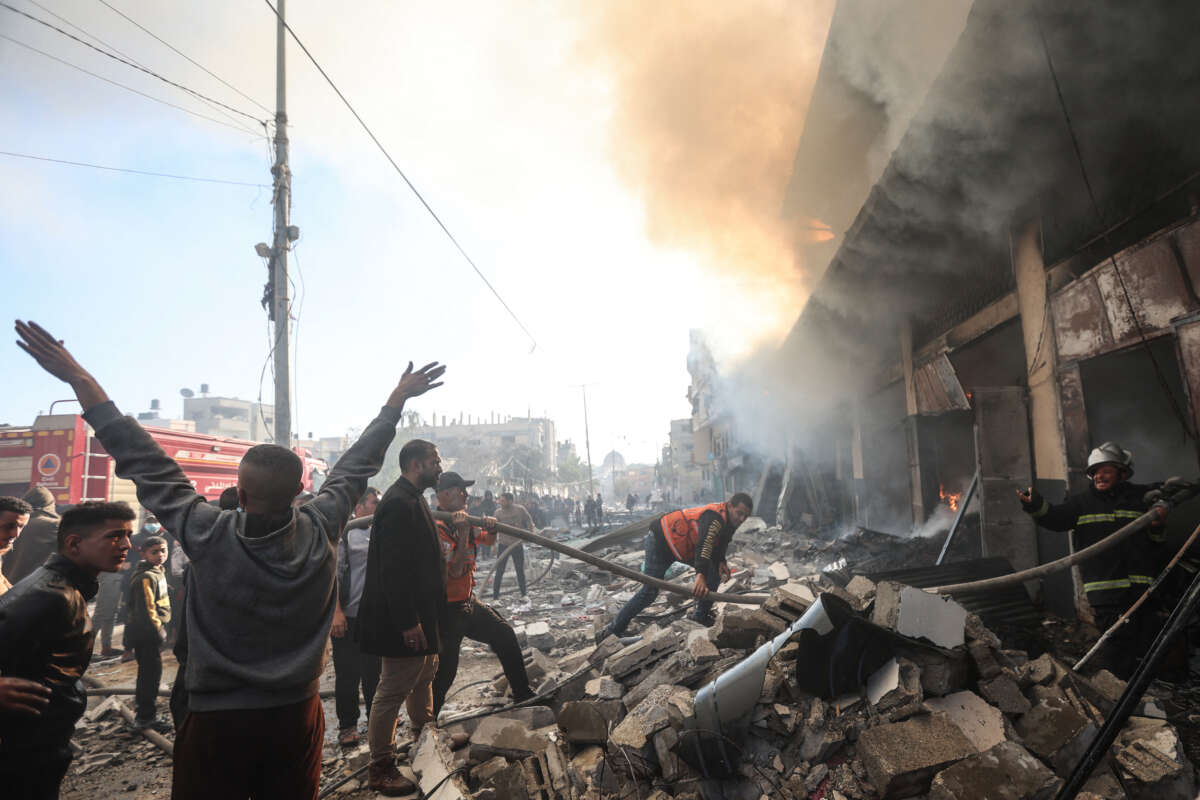Honest, paywall-free news is rare. Please support our boldly independent journalism with a donation of any size.
As the United Nations humanitarian chief warned that aid workers in Gaza are “hanging on by our fingertips” as they try to mitigate an “untenable” disaster, and with Americans’ support for Israel’s U.S-backed bombardment of the enclave eroding, the United States on Friday vetoed a resolution demanding an immediate humanitarian cease-fire at the U.N. Security Council.
U.S. Envoy to the U.N. Robert Wood told members of the council that a cease-fire would “only plant the seeds for the next war.”
Thirteen member-countries voted in favor of the cease-fire resolution, which was introduced after U.N. Secretary-General António Guterres took the rare step of invoking Article 99 of the U.N. Charter, warning that Israel’s slaughter of at least 17,487 Palestinians in just two months “may threaten the maintenance of international peace and security.”
The U.K. abstained from voting on the resolution, saying it did not take into account that Hamas committed acts of terrorism when it attacked Israel on October 7.
Riyad Mansour, the Palestinian U.N. envoy, called the veto “disastrous.”
“The Security Council was again prevented from rising to this moment to uphold its clear responsibilities in the face of this grave crisis threatening human lives and threatening regional and international peace and security,” said Mansour. “Instead of allowing this council to uphold its mandate by finally making a clear call after two months of massacres that the atrocities must end, the war criminals are given more time to perpetuate them. How can this be justified?”
Nicolas de Rivière, France’s permanent representative to the Security Council, who voted in favor of the cease-fire, argued that there is no “contradiction in the fight against terrorism and the protection of civilians, in strict respect of international humanitarian law.”
“Unfortunately once again, this council has failed. With a lack of unity and by refusing to genuinely commit to negotiations in doing this, the crisis in Gaza is getting worse and it runs the risk of extending,” said de Rivière.
The U.S. has now vetoed U.N. resolutions to hold Israel accountable for its policies in Palestine 45 times, human rights lawyer Noura Erakat said.
Former U.N. human rights official Craig Mokhiber — who resigned in October over the U.N.’s response to the war in Gaza — noted that U.S. blocked the resolution on the eve of the 75th anniversary of the U.N. Genocide Convention.
“Thousands have died since [the United States’] last veto and more will die now,” said Mokhiber.
Media that fights fascism
Truthout is funded almost entirely by readers — that’s why we can speak truth to power and cut against the mainstream narrative. But independent journalists at Truthout face mounting political repression under Trump.
We rely on your support to survive McCarthyist censorship. Please make a tax-deductible one-time or monthly donation.
